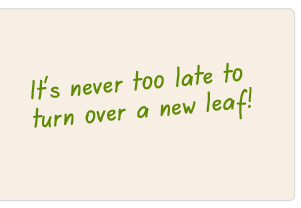How Many Irons Are In YOUR Fire?
It’s the beginning of a new year!
It’s been a few months since my last newsletter. Life has a tendency to throw you a curve ball when you least expect it.
In the span of a couple of months from late August to early November, our family lost a paternal aunt who had a brain tumour and a maternal uncle with kidney-related issues. These deaths were somewhat expected. In late October, my brother-in-law Dan (my youngest sister’s husband) passed away after having an allergic reaction to penicillin.
Death has a way of putting everything in life into perspective.
Is the speed of your life racing? In talking to a number of people (organizers included) during the fall and the holidays, so many told me that they were just overwhelmed. In some cases, it felt like the train had gone off the tracks. And yes, organizers can be just as guilty of having too much on their plate–even though we’re supposed to know better!
Often the holidays are a time of seemingly endless to-do lists, and there’s not much time to relax and unwind. Debbie Travis said “The beginning of the year is filled with fresh hopes and resolutions. But I think most of us, as we pack away all the…ribbons and lights, long for a bit of a breather before embarking on…new goals. If you have the [chance] to take a week away from…responsibilities, then grab it and enjoy.” If not, can you take a weekend, a day, a morning, afternoon or evening to do something you love to do? Everyone needs to take some time to recharge. Otherwise, you may not be able to focus your efforts as much as you would like, and the end result may not turn out the way you had hoped.
If you’re ready, let’s get started and turn over another leaf!
BEING MORE PRODUCTIVE AT HOME AND WORK
“Multitasking? I can’t even do two things at once. I can’t even do one thing at once.” Helena Bonham Carter, British Actress
If I told you that you could gain an extra 6 weeks of time per year, would you believe me? If you’re overwhelmed, it’s time to stop and come up with a new plan.
Planning
What can you do differently? Brainstorm and make a list.
Most people are more creative when it’s quiet. I’ve read that being close to water can help the creative juices flow. If you can’t find a spot near water to do some thinking, try to find a quiet place.
Prioritize Your Work
Set aside some time first thing in the morning to prioritize what needs to be done. It’s even better if you can do this at the end of the day. You’ll be more focused when you can jump right into the first task on your list.
Interruptions
If you can close the door when you’re working, you’re less likely to be interrupted. Don’t answer the phone; let your answering machine take a message. Don’t check your e-mail. Turn off the pop-up which notifies you every time you receive a new e-mail. Ask people to respect your request for no interruptions during a specified period of time.
Multitasking
“Many people feel they must multi-task because everybody else is multitasking, but this is partly because they are all interrupting each other so much.” Marilyn vos Savant, American Writer
How many of you think you’re more productive when you multitask? Numerous studies have proven this to be untrue.
Chris Crouch, founder of the GO (Getting Organized) System tells us that when you multitask “you’re actually switching back and forth between tasks, and not doing several things at once.”
If you can block off 96 minutes of uninterrupted time each day and stay focused on your high priority tasks, you may be surprised what you can accomplish. “96 minutes happens to be 20 percent of an eight-hour workday.”
Of course, there are times when it’s acceptable to multitask. You can help your children with homework while preparing dinner.
It’s next to impossible to completely eliminate multitasking from our busy lives, but just being aware of the fact that multitasking reduces your productivity is a step in the right direction. However, if you can reduce multitasking by just 20%, you can gain almost 6 weeks per year for other activities. A higher reduction in multitasking should produce even better results.
Elizabeth Lengyel is the author of Getting Juiced About Your Life! How To Make Lasting Change Toward Work/Life Balance. Her 60-40-20 rule suggests blocking off chunks of time as follows:
- 60 minutes – focused work time – no interruptions
- 40 minutes – check e-mail, return phone calls, etc.
- 20 minutes – take a break
To-Do Lists and Planners
A leading Canadian time management expert, Harold Taylor, tells us that to-do lists are lists of intentions. When you schedule time in a planner to actually complete the tasks, it is more likely that they will be accomplished.
Follow-up File
Whether you have a desktop file or space in a desk drawer, it’s important to have a follow-up file.
Errands
When you have a number of errands to run, a bit of planning ahead of time should save you time, gas and even frustration. Plan your route to be as efficient as possible. If you’re not sure that a store has a particular item in stock, call ahead or check the internet and ask them to set it aside.
Rewards
Try one of the suggestions in the multitasking section for a month. Don’t be too hard on yourself. Life is stressful enough. Expect to make some adjustments.
The key to success is figuring out what works for you and your particular situation. Being more efficient will be worth the effort. Reward yourself for the extra time you create. I’m sure you won’t have a shortage of ideas for ways to use your newly created time!




Connect with us Online